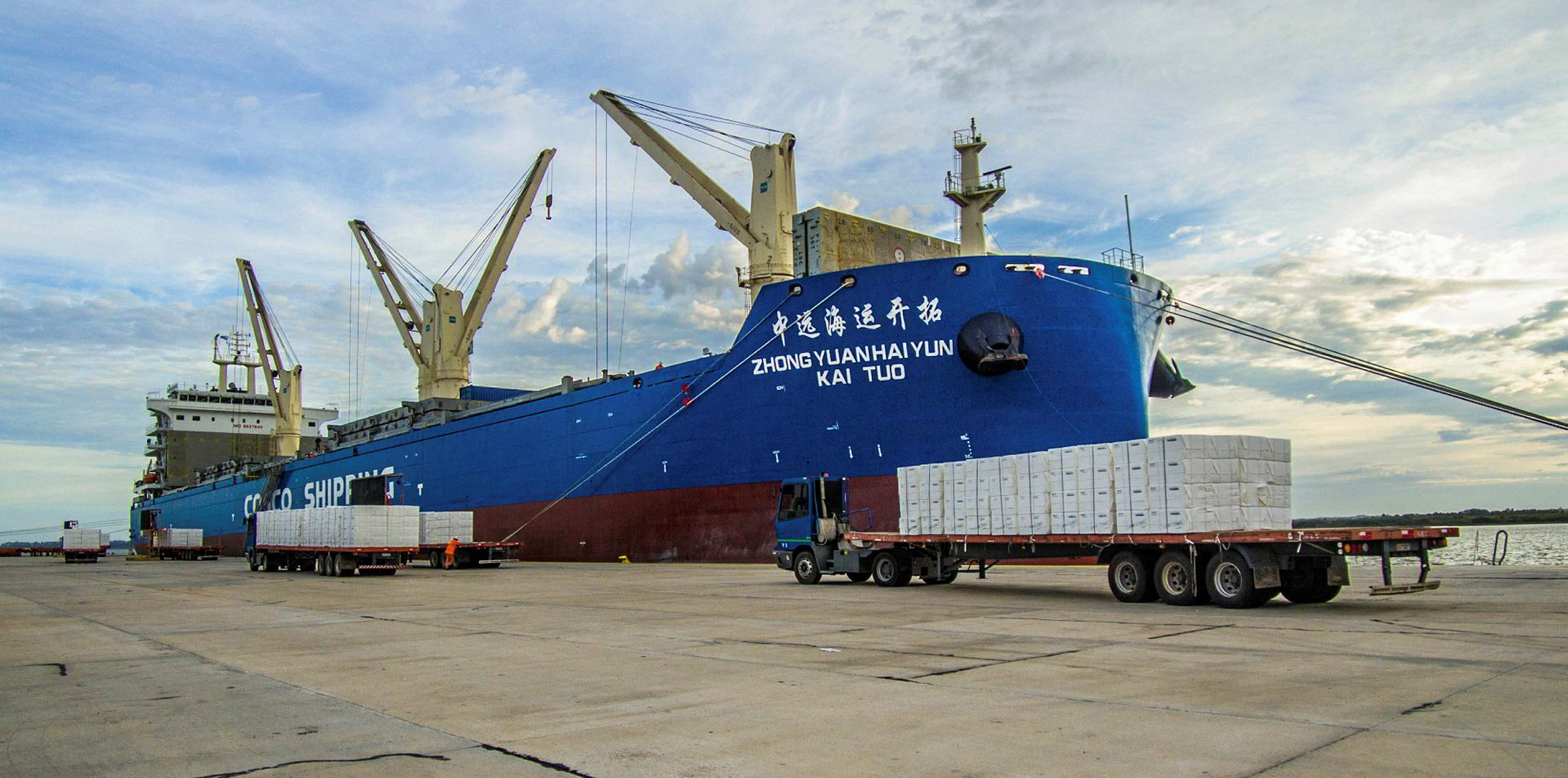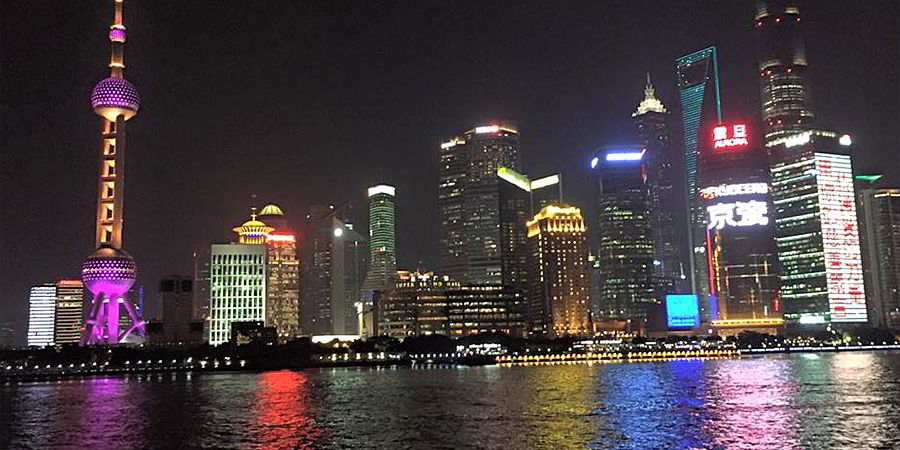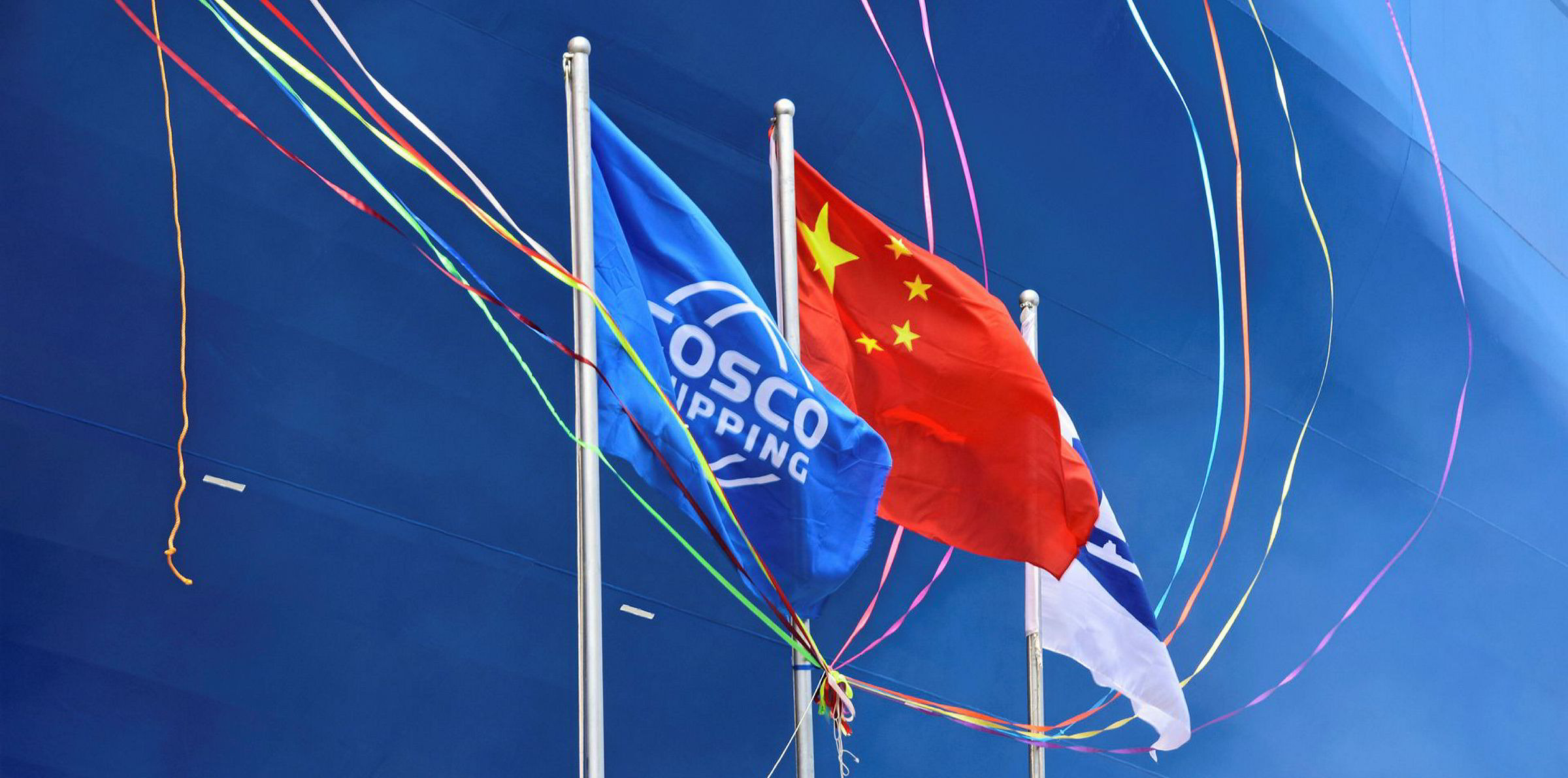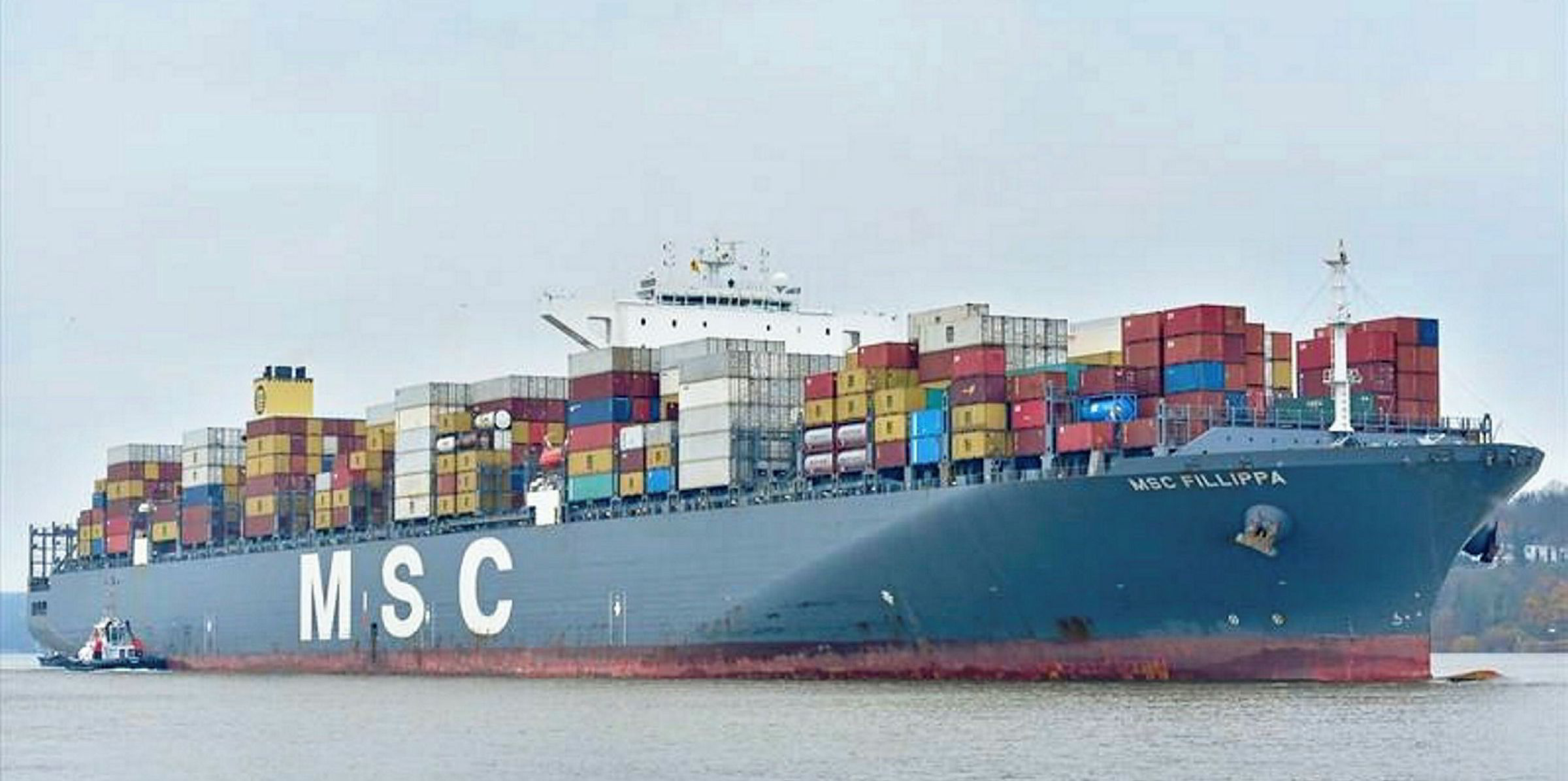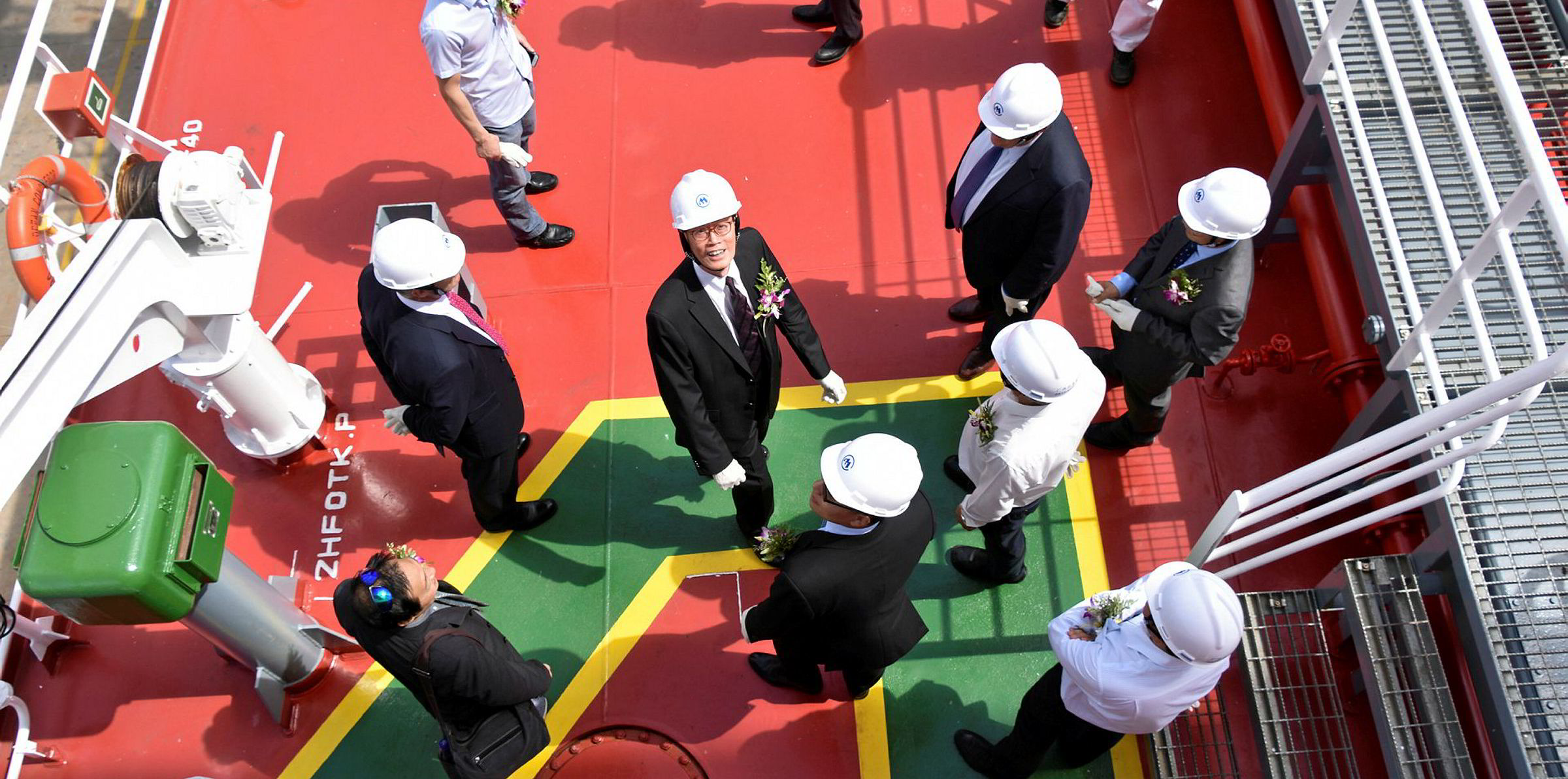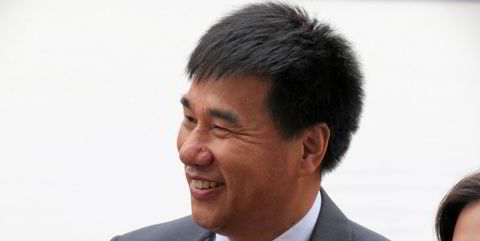Chinese lease finance houses have been told their services will not be needed for China Cosco Shipping's newbuildings.
The dramatic decision to take all newbuilding finance in-house represents a massive loss of business for companies including Bank of Communications Financial Leasing, ICBC Leasing, and China Merchant Bank Financial Leasing. The three outfits were the main contenders to share financing of Cosco's undelivered ships or planned ships.
Chinese ship finance sources told TradeWinds this week that all newbuildings that currently await financing will now be handled by Cosco's own subsidiary Oriental Fleet International (OFI), formerly known as China Shipping Nauticgreen Holding.
"They have torn up their term sheets with all the Chinese lease finance houses," said one financier.
But others underscored that Cosco has not reneged on any final deals, only walked away from negotiations. Cosco operating subsidiaries including Cosco Shipping Bulk are said to have been ordered by group officials to end talks.
Chinese banks are eager to fund Cosco's in-house leasing vehicle OFI.
"Cosco is a target customer not only of lease financing houses but also of Chinese state-owned banks, so it will be easy for the group to attract bank financing for its own internal leasing deals," said one Chinese lease finance executive, who spoke to TradeWinds on condition that his name and company not be identified.
He believes the move does not represent a permanent policy shift but is conditioned by opportunities in the current finance market.
"The reason is simple," said the finance executive. "Recently there is so much money in the market. It is easy for a state-owned company like Cosco to find bank financing. If conditions are different next year, they could come back to the leasing market."
One deal worth $1.4bn
Cosco's move to finance all newbuildings through OFI means that on one series alone, up to $1.4bn in business disappears from the leasing market.
Guangzhou-based Cosco Shipping Bulk's newcastlemax newbuilding project for its Guinea bauxite business with Aluminum Corp of China Ltd (Chalco) had been pegged at 18 ships last year, with at least 10 further ships expected to be added this year. Brokers and financial sources put the prices at between $50m and $53m per ship.
Cosco Shipping Bulk currently has newcastlemaxes on order at Chinese yards including Qingdao Beihai Shipbuilding Heavy Industry, Tianjin Xingang Shipbuilding Heavy Industry, Dalian Cosco KHI Ship Engineering and Cosco Shipping Heavy Industry Yangzhou.
But other ships with finance pending include a series of special design multipurpose (MPP) pulp carriers for Cosco Shipping Specialized Carriers, also based in Guangzhou.
In March, the unit announced a $290m order from Cosco Dalian for eight more 62,000-dwt ships in its series of ultramax-sized MPPs. The ships are designed to combine pulp imports with exports of Chinese industrial products.
Financial sources also expected pending additions to Cosco's containership fleet to be financed in house as a result of the new decision.
At the same time, as third-party financiers lose the opportunity to do leasing business with Cosco, observers now expect Cosco's interest in providing ship finance to foreign third party shipowners to disappear, as all OFI's resources will go to funding its sister companies' orders.
They point out that OFI's very name was chosen with a view to potential foreign clients, who might be put off by the Cosco name in a finance provider.
Some ship-finance sources fear the massive loss of financing volume after the disappearance of Cosco business will make the other Chinese lessors more aggressive, as they search for replacements for a huge target customer.
One leasing official disputes this.
"All Chinese state-owned lease financing companies have very strong risk control departments now," he said.
"Our marketing departments always want to be aggressive. But our risk control departments don't care about the market. And the Chinese leasing industry has learned its lesson from some mistakes in the past."
